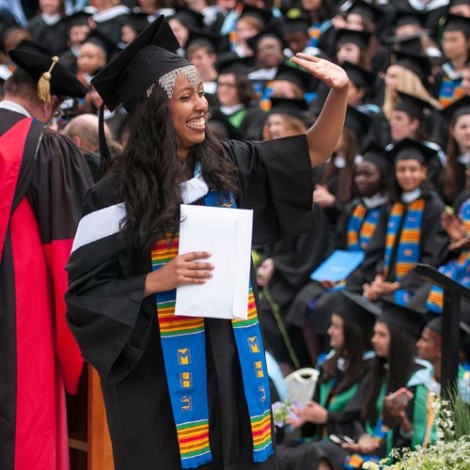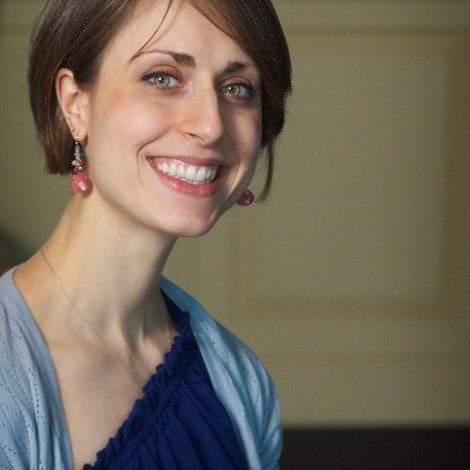BIOCH-295 Independent Study
In this class, students will acquire hands-on and/or applied experience in diverse aspects of the research process in any field of Biochemistry under the direction and supervision of a faculty advisor. Typically, these projects are related to the research program of the advisor. Student experiences often include: familiarizing themselves with a research topic, generating interesting questions, designing experiments, acquiring technical and instrumentation skills, collecting and analyzing data, writing and/or presenting their results. Faculty in the Biochemistry program accept research students through research applications within their home departments. To inquire about enrollment, students should therefore fill out the application forms available through the Departments of Chemistry and Biological Sciences. The application is generally available each semester with a deadline immediately following the advising period,and faculty meet before the end of the semester to place students in labs for the following semester. Enrollment into a research opportunity depends on lab capacity, so often not all applications are able to be fulfilled. A single credit requires an average of 3 hours of work per week. (Note: Some faculty may require a set weekly meeting time for a portion of this class.)
BIOCH-311 Protein Biochemistry and Cellular Metabolism
This course is a rigorous introduction to the study of protein molecules and their role as catalysts in the cell. Topics include general principles of protein folding, protein structure-function correlation, enzyme kinetics and mechanism, carbohydrate and lipid biochemistry, and metabolic pathways (catabolic and anabolic) and their interaction and cross-regulation. Biological transformation of energy is considered in light of the principles of thermodynamics.
BIOCH-312 Chemistry of Biomolecules
An examination of the major ideas of biochemistry from the point of view of the chemical sciences rather than the life sciences. The focus will be on structure and reactivity of important biomolecules and the role of energetics and reaction dynamics in biochemical processes. Major metabolic pathways are covered, including those of proteins, carbohydrates, lipids, and nucleic acids.
BIOCH-314 Nucleic Acids and Molecular Biology
This course is an in-depth examination of DNA and RNA structures and how these structures support their respective functions during replication, transcription, and translation of the genetic material. Emphasis is on the detailed mechanisms associated with each step of gene expression. Discussions incorporate many recent advances brought about by recombinant DNA technology.
BIOCH-318 Laboratory Techniques in Protein Biochemistry
This course covers fundamental laboratory techniques in protein biochemistry and data analysis. The aims of this course are: 1) to provide students with practical knowledge and hands-on experience with some of the most common experimental methods used in biochemical research, and 2) to develop the skills in written and oral scientific communication. The course focuses on protein overexpression and purification and also includes reagent preparation, proper use of instrumentation, SDS-PAGE gel analysis, enzyme activity assays, protein structure viewing, experimental design and utilizing computers to analyze and present data. Laboratory safety is also emphasized.
BIOCH-330 Topics in Biochemistry and Molecular Biology
This course each year examines a number of important and exciting topics in biochemistry, molecular biology, and other related fields of biology. The intellectual and research development that formulated these fundamental concepts is traced through extensive readings of the primary literature. Discussions emphasize the critical evaluation of experimental techniques, data analysis, and interpretation. This is a seminar-style course in which students will bear responsibility for the synthesis and presentation of assigned papers; substantial student participation in the form of oral presentation is expected.
BIOCH-330RN Topics in Biochemistry and Molecular Biology: 'The RNA World: The Origin of Life to Modern Cells'
RNA is believed by many to have been the first macromolecule to evolve. In a hypothesized "RNA world," RNA would have simultaneously served the roles of carrying genetic information and catalyzing chemical reactions within early cells. The past three decades have been a renaissance for RNA biology, as researchers have uncovered the critical role RNA plays in eukaryotic and bacterial gene regulation and defense, as well as the potential for RNAs to perform catalysis. This seminar will introduce students to modern approaches to study the structure and function of RNA and will explore the chemical and biological roles RNA plays in modern cells as well as its role in the origin of life.
BIOCH-395 Independent Study
In this class, students will acquire hands-on and/or applied experience in diverse aspects of the research process in any field of Biochemistry under the direction and supervision of a faculty advisor. Typically, these projects are related to the research program of the advisor. Student experiences often include: familiarizing themselves with a research topic, generating interesting questions, designing experiments, acquiring technical and instrumentation skills, collecting and analyzing data, writing and/or presenting their results. Faculty in the Biochemistry program accept research students through research applications within their home departments. To inquire about enrollment, students should therefore fill out the application forms available through the Departments of Chemistry and Biological Sciences. The application is generally available each semester with a deadline immediately following the advising period, and faculty meet before the end of the semester to place students in labs for the following semester. Enrollment into a research opportunity depends on lab capacity, so often not all applications are able to be fulfilled. A single credit requires an average of 3 hours of work per week. (Note: Some faculty may require a set weekly meeting time for a portion of this class.)



